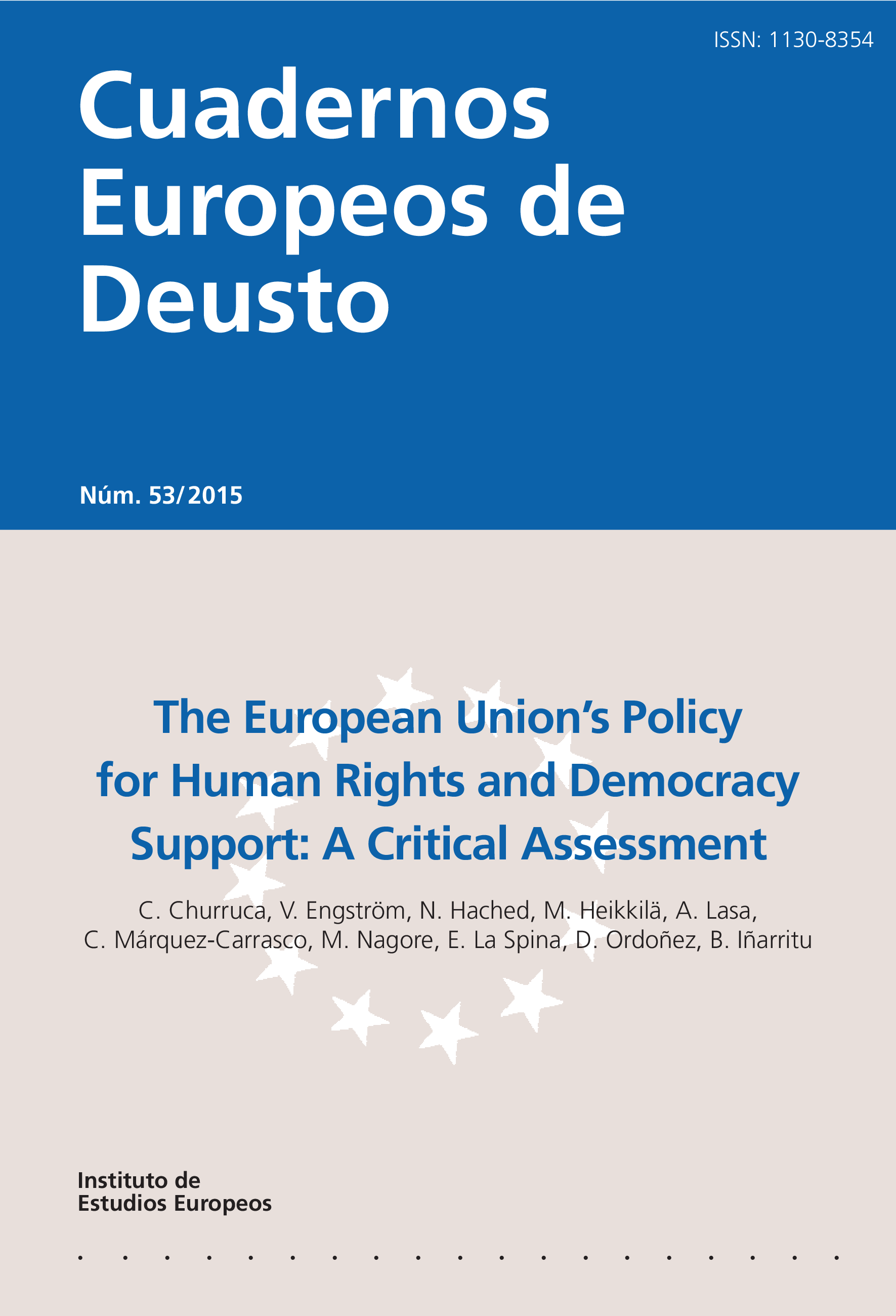Aspects of asymmetric harmonization for entry and residence of third-country national family members in the European Union
Abstract
After a decade of the adoption of EU Directive 2003/86, the Stockholm Programme and the European Pact on Immigration and Asylum indicate that family reunification is one of the main issues for the European policy migration’s development. However, the implementation of Directive shows the existence of problems and deficiencies in national level to assess the leeway to Member States when they are applying some of its optional clauses. Thereby, this paper is focused on reviewing legal-political implications of family immigration related to fraud control, family members inclusion and the exigency of possible integration measures. All these aspects highlight not only the technical shortcomings of the European harmonization process but also they warn their incompatibility with international human rights standard.
Received: 26 May 2015
Accepted: 18 June 2015
Published online: 15 April 2016
Downloads
The author grants to the Publisher the distribution, public communication, and reproduction rights of her/his work subject of publication in Deusto Journal of European Studies (DJES), whichever the media may be, including the permission to include it in the databases where this Journal is indexed and in the institutional repository of the Universidad de Deusto.
Upon its publication, the content of any Issue of Deusto Journal of European Studies (DJES) can be accessed, read, downloaded, copies, and distributed freely for non-commercial purposes and in accordance with any applicable copyright legislation.
The content of Deusto Journal of European Studies (DJES) can be subsequently published in other media or journals, as long as the author clearly indicates in the first footnote that the work was published in Deusto Journal of European Studies (DJES) for the first time, indicating the Issue number, year, pages, and DOI (if applicable). Any other use of its content in any medium or format, now known or developed in the future, requires prior written permission of the copyright holder.
The content of the work published in Deusto Journal of European Studies (DJES) is each author's sole responsibility. The authors assume the responsibility of obtaining all the necessary licenses for the reproduction in their manuscripts of any text, material or illustration coming from another author, institution or publication. The liabilities that may arise from complaints for publishing plagiarised articles are the sole responsibility of the author.


3.jpg)
2.jpg)
2.jpg)
2.jpg)
2.jpg)
2.jpg)







